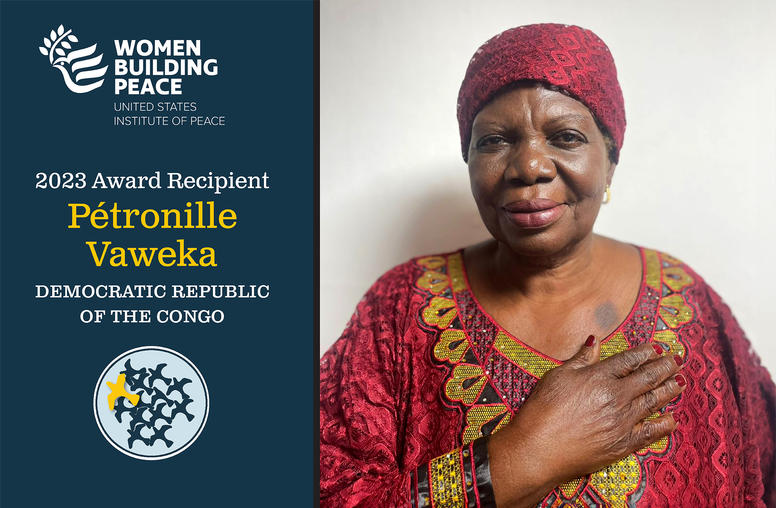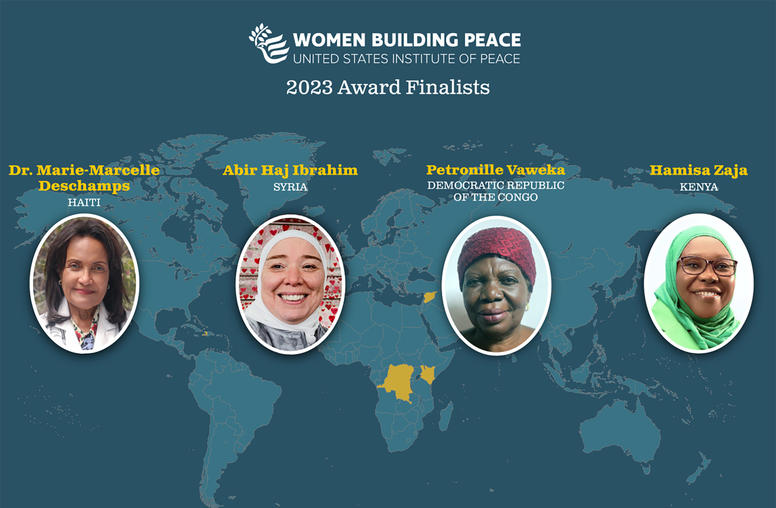Kosovo Mayors Offer Bold Vision for Future
Institute concludes four-day workshop on "Developing Good Governance in Kosovo."
WASHINGTON, DC - At the conclusion of a four-day training workshop recently organized by the United States Institute of Peace, forty-four of Kosovo's newly elected mayors, deputy mayors, and municipal assembly members - representing a wide diversity of ethnic minorities - issued three consensus reports that called for
- Adoption of a legal framework for Kosovo-wide governmental institutions that guarantees equal rights for minorities and provides for the establishment of an operational framework for municipal governments.
- Establishment of an independent ombudsman office with direct authority to investigate any suspicious activity on the municipal level.
- Creation of a code of ethics for municipal officials and civic initiative watchdog organizations to disclose and disseminate information on candidates for municipal office to the public prior to elections.
To help implement these decisions, the participants agreed to propose the formation of a Kosovo-wide council of mayors later this month. These reports are available in English, Albanian, and Serbian on the Institute website.
Organized by the United States Institute of Peace at the request of the Department of State and with support from World Learning Inc., the training workshop was designed to equip the newly elected municipal officials to act as agents for positive change within Kosovo society and to foster the development of cooperation among municipal leaders. Workshop participants, chosen by the U.S. Office in Pristina, included a diverse array of representatives of Kosovar society including Albanians, Serbians, Turks, Ashkalli, Gora, Bosnians, Roma, and Egyptians. The workshop was held at the Airlie House in Warrenton, Virginia, over the week of February 25.
Throughout the week participants worked together in a series of discussions, exercises, and simulations designed to
- Promote mutual understanding and tolerance necessary in a democratic society;
- Strengthen local government through cooperation and coordination skills;
- Illustrate the importance of transparency, accountability, and responsibility as fundamentals to good governance; and
- Establish municipal assemblies and administrations as effective providers of services and vehicles of sustainable development.
Featured during the workshop were special negotiation and mediation exercises designed to promote enhanced communication and cooperation among the conference participants as well as several lecture-discussions, demonstrations, and other exercises. Outside guest speakers from the Knight-Ridder Newspapers, Loudoun County, Transparency International, and the United States Chamber of Commerce addressed issues such as relationships between government and the press, combating corruption, and attracting private investment.
The U.S. Institute of Peace is a non-partisan, independent organization created and funded by the U.S. Congress to promote prevention and resolution of international conflicts. Since 1995, the Institute's Balkans Initiative has been active in the region and has sought to foster broad-based policy discussions in Washington among government and non-government experts to assist in building consensus on key issues in the Balkans. Over the past several years, a wide variety of foreign affairs, national security, and humanitarian relief practitioners have participated in the Institute's training programs. Participants have included diplomats, governmental officials, and military personnel from the United States and over forty foreign countries.
For further information regarding this event please contact Burt Edwards in the Office of Communication at (202) 429-3878 or email at usip_requests@usip.org.

